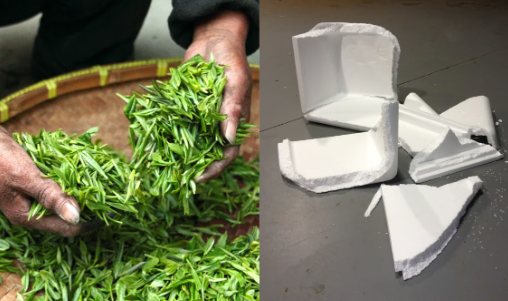IISc Researchers Developed Revolutionary Eco-Friendly Biodegradable Foam
Researchers at the Indian Institute of Science (IISc) have made important strides in sustainable packaging. They have developed a biodegradable foam that offers a promising alternative to traditional plastic materials. This innovation comes at a critical time as environmental concerns intensify. The Indian foam market is projected to grow, denoting the need for sustainable solutions.
Background of the Research
The research team, led by Professors Suryasarathi Bose and Subodh Kumar, aimed to address pressing environmental issues. The current plastic foam production rate is alarming, with less than 1% of the 2.3 million tonnes recycled annually. This new foam could change that narrative.
Unique Chemical Structure
The biodegradable foam features a unique chemical structure. It contains dynamic covalent bonds that can break and reform. This property allows the foam to be mechanically reprocessed or dissolved in eco-friendly solvents. Remarkably, it maintains its strength throughout these processes.
Rapid Disintegration
One of the standout features of this foam is its rapid disintegration. When exposed to eco-friendly solvents at 80°C, it can break down within three hours. This is a stark contrast to traditional materials that can linger in landfills for centuries.
Eco-Friendly Materials Used
The bio-derived foam is made from US FDA-approved non-edible oils and natural hardeners. It combines epoxidized fatty acids with polyphenol-based hardeners sourced from tea leaves. This makes the foam entirely eco-friendly and safe for various applications.
The environmental benefits of this foam are substantial. Traditional production of 10,000 plastic foam cups emits approximately 680 pounds of greenhouse gases. In contrast, the new foam reduces this carbon footprint while offering excellent compressive strength.
Durability and Performance
Testing has shown that the biodegradable foam is remarkably durable. It can withstand up to 10,000 cycles of cyclic loading. This durability makes it particularly suitable for the Fast-Moving Consumer Goods (FMCG) sector, where packaging protection is essential.
Industry Potential and Market Readiness
With increasing emphasis on environmental sustainability, the researchers are optimistic about market adoption. They aim to collaborate with companies to scale up production and bring this innovative foam to consumers. The potential for this product to replace conventional expanded polystyrene (EPS) and polyurethane (PU) foams is important.
This innovation marks a very important advance in sustainable packaging solutions. It provides industries with an environmentally responsible alternative that meets both performance and sustainability requirements. As businesses seek greener options, this biodegradable foam could lead the way in transforming the packaging landscape.
Important Facts for Exams:
- IISc: The Indian Institute of Science is a premier research institution in India. It focuses on advanced scientific research and innovation across various disciplines.
- FMCG: Fast-Moving Consumer Goods refer to products that sell quickly at relatively low cost. These include everyday items like groceries and toiletries that require frequent restocking.
- EPS: Expanded Polystyrene is a lightweight and rigid foam commonly used for insulation and packaging. It is notorious for its environmental impact due to poor recyclability and persistence in landfills.
- PU: Polyurethane is a versatile polymer used in various applications including foams and coatings. It offers durability and flexibility but poses environmental challenges due to its non-biodegradable nature.
Month: Current Affairs - November, 2024
Category: Environment Current Affairs


